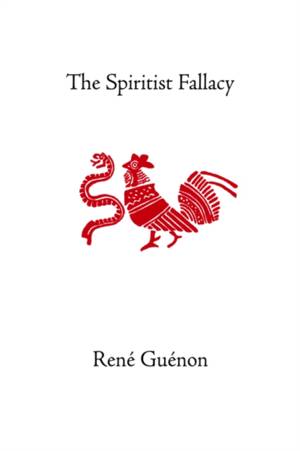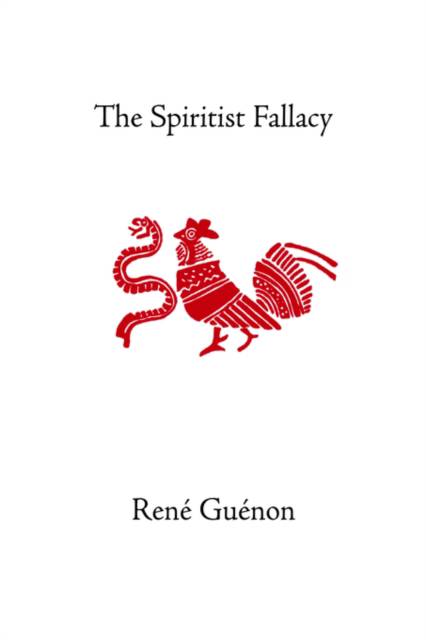
- Retrait gratuit dans votre magasin Club
- 7.000.000 titres dans notre catalogue
- Payer en toute sécurité
- Toujours un magasin près de chez vous
- Retrait gratuit dans votre magasin Club
- 7.000.0000 titres dans notre catalogue
- Payer en toute sécurité
- Toujours un magasin près de chez vous
46,45 €
+ 92 points
Format
Description
Since WW II, 'channeling' has largely replaced older styles of mediumship in the movement loosely known as the New Age. Yet the two are intimately related. As both historical chronicle and metaphysical critique, The Spiritist Fallacy, together with its companion volume, Theosophy: History of a Pseudo-Religion, is a valuable study of New Age origins. Guénon takes the 'spirit manifestations' of the Fox sisters in Hydesville, New York (in 1847) as his starting-point, but while accepting the reality of many such 'manifestations', denies that they represent the spirits of the departed. He sees them, rather, as fostering belief in a kind of rarefied materialism, as though the 'spirit of the deceased' were no more than an invisible, quasi-material body, and death no more than a 'shedding' of the physical body while the 'spirit' remains otherwise unchanged-a belief widespread today in popular culture. The author demonstrates how various 'spirit philosophies' are little more than reflections of their own milieux-'English spirits' being conservative and denying reincarnation, 'French spirits' accepting reincarnation and espousing progressivist or revolutionary ideas, etc. And he addresses the strange fact that 'manifestations' associated from antiquity with haunted houses suddenly, in the 19th century-and within five years of their appearance-spawned an international pseudo-religious movement, speculating that certain magicians (possibly from the Hermetic Brotherhood of Luxor) may have intentionally produced the Hydesville phenomena by actively projecting hidden influences upon the passive psyches of their mediums. The mutual influence of Spiritism and Theosophy, and the adverse affects of 'spirit entities' upon many mediums, are also covered in considerable detail. The Spiritist Error is both an exposé of 'unconscious Satanism' and a highly useful critique of the false ideas of the afterlife which are so prevalent in our time.
Spécifications
Parties prenantes
- Auteur(s) :
- Traducteur(s):
- Editeur:
Contenu
- Nombre de pages :
- 364
- Langue:
- Anglais
- Collection :
Caractéristiques
- EAN:
- 9780900588723
- Date de parution :
- 23-05-04
- Format:
- Livre relié
- Format numérique:
- Ongenaaid / garenloos gebonden
- Dimensions :
- 152 mm x 229 mm
- Poids :
- 684 g

Les avis
Nous publions uniquement les avis qui respectent les conditions requises. Consultez nos conditions pour les avis.






